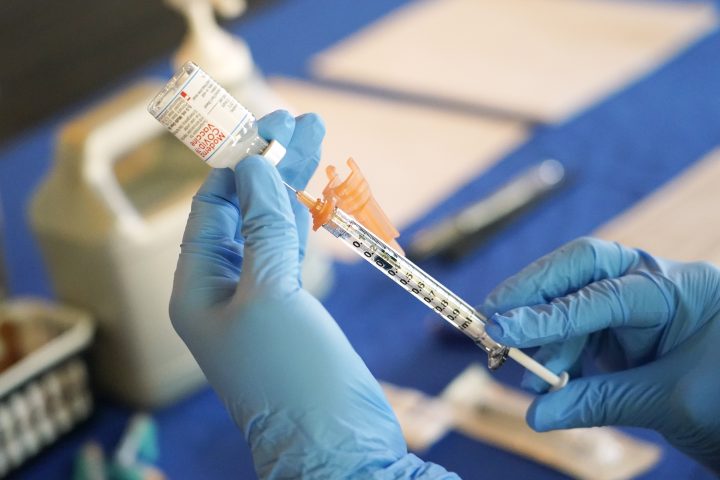Canadians have been dealing with COVID-19 for over two years now, and a number of vaccines have been introduced to fight the virus, including the anticipated COVID-19 bivalent booster shot.

However, in Saskatchewan, many people are left waiting to get their dose.
The bivalent vaccine specifically targets the Omicron variant, which is currently the predominant variant circulating globally.
Across Canada, six of the 10 provinces currently offer the bivalent vaccine to anyone 18 and older.
British Columbia, Alberta, Manitoba, Ontario, Nova Scotia and Prince Edward Island all offer the booster to anyone 18 and older.
Quebec currently offers the vaccine to anyone 30 and older. In New Brunswick anyone 50 and older is eligible for the bivalent vaccine, while Newfoundland offers it to anyone 65 and older.
However, Saskatchewan is the only province that only offers the vaccine to adults 70 and older or 50 and older to those on First Nations and Metis communities.

Get weekly health news
In a statement to Global News, the Ministry of Health said they are prioritizing offering the vaccine to vulnerable populations first but did not outline how many doses have been administered or a date they plan to lower the eligible age.
Dr. Nazeem Muhajarine, a University of Saskatchewan epidemiologist, hopes the eligibility opens up sooner rather than later.
“Omicron is still spreading quite quickly,” Muhajarine said. “There’s a lot of reinfections happening, and reinfections are happening quite quickly, one infection after another.”
As more people have moved inside for the fall and into the winter and COVID-19 cases rise, Muhajarine hopes people get the bivalent booster as soon as possible.
“These bivalent vaccines are particularly more effective because it addresses the present Omicron-driven cases,” he explained. “It does add an additional layer of protection against serious COVID-19 outcomes like hospitalization and death.
Muhajarine adds it is important to remember the bivalent dose does not eliminate transmission of the Omicron variant, but rather helps to reduce it.
The Ministry of Health said they have received 168,000 doses of the vaccine from the federal government — a number Muhajarine is happy to hear. Still, he wants more advertising to be done on the availability and urgency of getting the bivalent booster.
“The bivalent vaccines are available now, but there isn’t a whole lot of promotion of it going on,” he said. People need to understand who is eligible and where to get it. We really need to promote it a lot more and talk about it a lot more than we seem to be doing.”
The Saskatchewan Health Authority recommends eligible populations receive the bivalent booster dose at least four months following their last COVID-19 vaccination, regardless of the number of COVID-19 doses received to date.
Appointments can be made online on the Saskatchewan Health Authority’s website.











Comments
Want to discuss? Please read our Commenting Policy first.